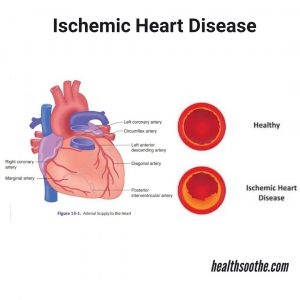An obsessive pounding in the ear can occur in a person of any age. Sometimes it goes away on its own, sometimes it requires special treatment. The duration of the symptom persistence is also different - some patients say that the thud occurs intermittently, describe it as a "series" of blows, others note a constant thud that interferes both day and night. The thumping sounds can coincide with the pulse - this is an important characteristic of ear noise , which serves as a guide in diagnostic search. Experts agree that knock-type ear noises can significantly reduce the patient's quality of life, so it is necessary to understand what triggered the knock, whether it is possible to eliminate it with the help of any treatment methods.
Causes
 Any type of ear noise causes a lot of inconvenience to the patient. In addition, many sounds that are classified as "background noise" appear with a decrease in hearing acuity - and this is not at all a favorable sign. The causes of pounding in the ear should be found as soon as possible, since delay in some cases threatens the development of irreversible hearing loss. What can be a pounding in the ear, the causes and treatment of which require care in the diagnostic search? Ear noises of any tonality are divided into main types:
Any type of ear noise causes a lot of inconvenience to the patient. In addition, many sounds that are classified as "background noise" appear with a decrease in hearing acuity - and this is not at all a favorable sign. The causes of pounding in the ear should be found as soon as possible, since delay in some cases threatens the development of irreversible hearing loss. What can be a pounding in the ear, the causes and treatment of which require care in the diagnostic search? Ear noises of any tonality are divided into main types:
- emission;
- non-emission.
Emission sounds can be heard by objective examination.
Emission knock
Why is it knocking in the ear? Emission noise can be caused by:
- Narrowing of the carotid arteries.
- Narrowing of the jugular veins.
- The presence of arteriovenous shunts.
- Atherosclerosis.
- The presence of tumors of the head and neck.
The emission or objective nature of the sound usually reflects the presence of hemodynamic disturbances.
Patients who have pathologies associated with the circulatory system complain of pounding in the ears. Narrowing of the lumen of blood vessels and the formation of arteriovenous connections, or shunts, can cause ear noise.
 Why is my ears pounding? If the blood flow in the vessels is impaired (for example, in the vertebral arteries, which are part of the vertebro-basilar system), knocking can be a sign of atherosclerotic stenosis or compression (compression) of the artery. It should be said that in the elderly, atherosclerosis and the associated vertebro-basilar insufficiency can cause a pronounced nature of the noise - it is as if something is knocking in the ear, and the patient clearly distinguishes the sound. At the same time, the presence of atherosclerotic plaques does not exclude the presence of blood clots, which contributes to a significant narrowing of the lumen of the artery and an increase in symptoms from the organ of hearing.
Why is my ears pounding? If the blood flow in the vessels is impaired (for example, in the vertebral arteries, which are part of the vertebro-basilar system), knocking can be a sign of atherosclerotic stenosis or compression (compression) of the artery. It should be said that in the elderly, atherosclerosis and the associated vertebro-basilar insufficiency can cause a pronounced nature of the noise - it is as if something is knocking in the ear, and the patient clearly distinguishes the sound. At the same time, the presence of atherosclerotic plaques does not exclude the presence of blood clots, which contributes to a significant narrowing of the lumen of the artery and an increase in symptoms from the organ of hearing.
When the ears are pounding, what does it mean for the person involved in sports? The murmur is caused by high cardiac output (an increase in the volume of blood that the heart pumps into the aorta per unit of time). After a short rest and normalization of the heart rate, the noise stops on its own. Other conditions should also be named in which high cardiac output causes an unpleasant "background noise". Pounds in the ear with:
- pregnancy;
- anemia;
- thyrotoxicosis.
It must be emphasized that ear noise is not at all an obligatory companion of pregnancy, it appears only in some cases. With thyrotoxicosis and anemia, it can acquire a different tonality and is not always characterized by patients as knocking.
Myogenic noise
Myogenic tinnitus is classified as emission noise. It is caused by involuntary contractions of the muscles of the soft palate, as well as the muscle that strains the eardrum, the stapedius muscle. When it knocks in the ear, the reasons may be associated with various pathologies:
- multiple sclerosis;
- intracranial tumors;
- psychogenic disorders, etc.
Myogenic noise can be discerned even without the use of a phonendoscope, standing next to the patient.
Non-emission knock
 Non-emission noises are subjective sounds. Others do not hear them, but the patient can hear them.
Non-emission noises are subjective sounds. Others do not hear them, but the patient can hear them.
They are not provoked by any external acoustic source and are a subjective sign of a number of diseases. The reasons for non-emission tinnitus are as follows:
- Decreased hearing acuity (hearing loss).
- Hypertonic disease.
- Taking ototoxic drugs.
- Various options for otitis media.
The causes of hearing loss are quite diverse (infectious diseases, trauma, occupational contact with noise, etc.), however, the main manifestation is a decrease in hearing acuity and the accompanying knocking in the right ear, on the left side or bilateral. Taking drugs with an ototoxic effect (antibiotics of the aminoglycoside group, diuretics, salicylates) can provoke hearing impairment.
Subjective noise can be associated with mental disorders.
Hypertension is manifested by an increase in blood pressure. With this pathology, a subjective knocking in the ear may occur, this is due to hypoxia of the auditory receptors.
Treatment
Treatment can be started only after finding out why the patient complains of a knocking noise. Conservative and surgical methods can be used, while the timing of the initiation of therapy and the predicted probability of reversibility of hearing loss are important.
Various types of drugs are used - glucocorticosteroids (Prednisolone), B vitamins (Milgamma), tranquilizers (Relanium), antipsychotics (Aminazin), histamine derivatives (Betaserc).
Some patients need methods such as:
- mechanotherapy;
 iontophoresis;
iontophoresis;- reflexology;
- psychotherapy.
In order to combat non-emission noise, audiomaskers can be used - devices that generate sounds of various frequencies and serve to distract the patient from the subjective "background noise". With a decrease in hearing acuity, hearing aids are necessary with the help of hearing aids. If conservative therapy is ineffective or inappropriate, surgical treatment is used.

 iontophoresis;
iontophoresis;

